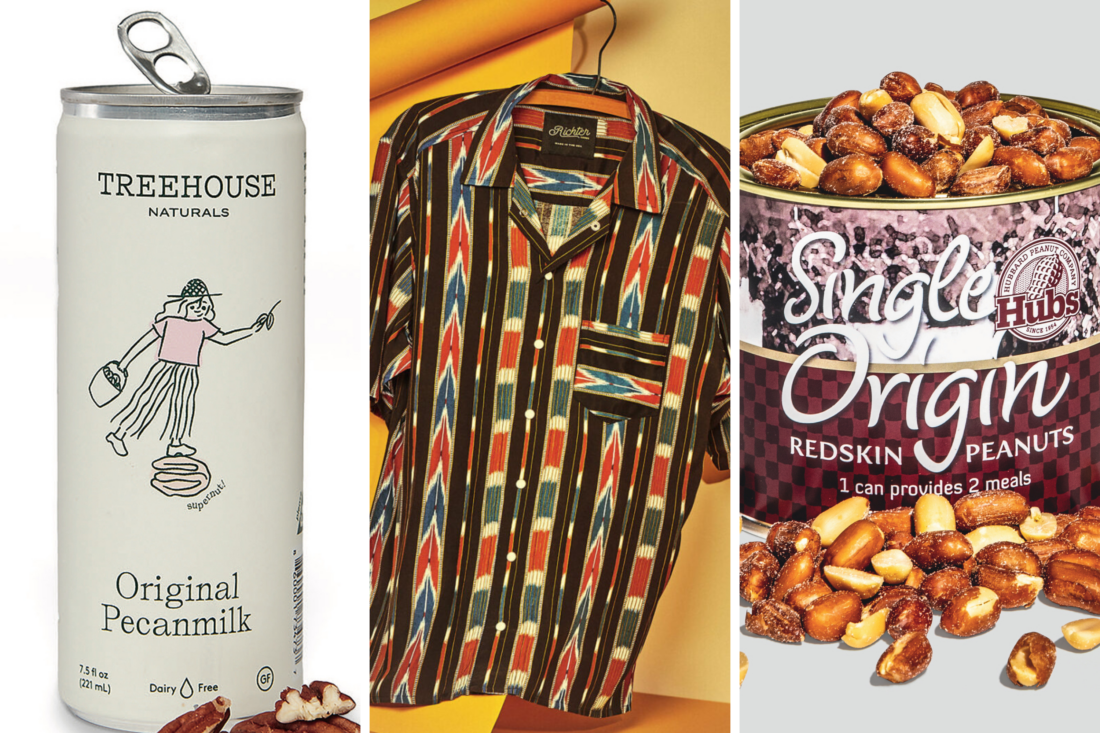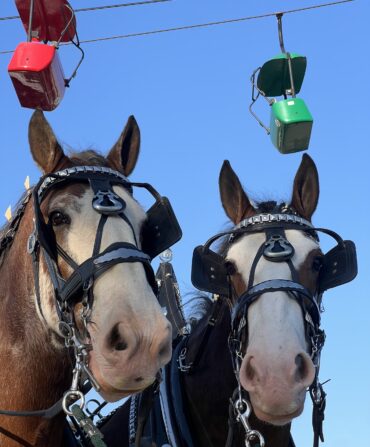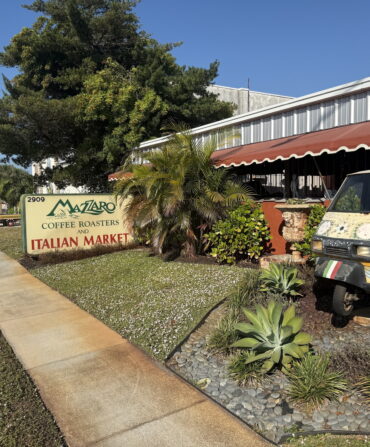Even before G&G’s Made in the South Awards began crowning Sustainability Award winners in 2022, many of our honorees had long prioritized the environment, both in their products and their practices. Small Southern makers know more than anyone that often, taking the slower, more deliberate route results in products that look, feel, and taste well worth the effort it takes to make them. We’ve rounded up eight of our past winners and runners-up who are creating positive impacts on the South—and the planet.

Single Origin Redskin Peanuts
Sedley, Virginia
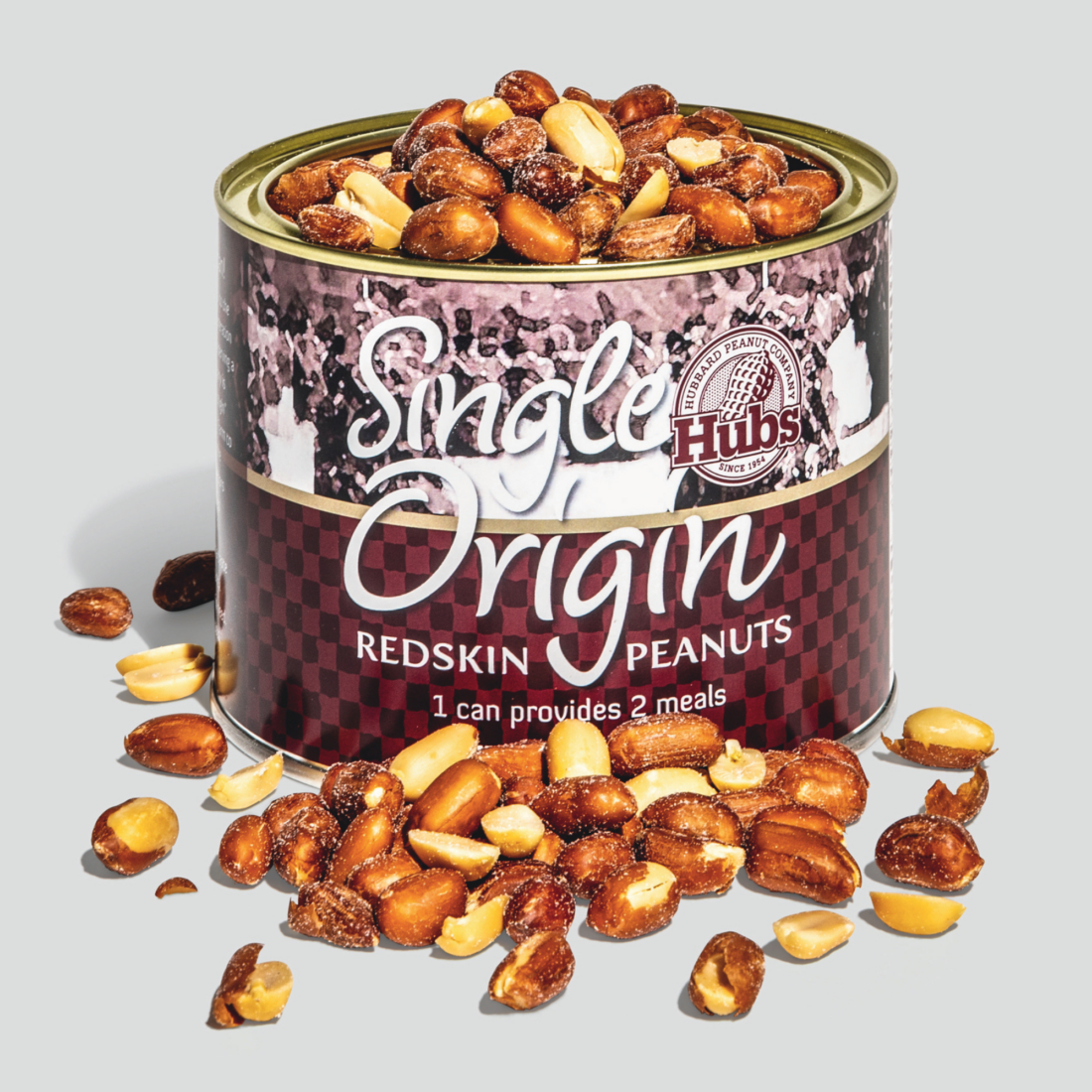
The humble peanut, in and of itself, is a sustainability champion. Technically a legume, peanuts require minimal water and give back to the earth by depositing nitrogen into the soil. At Hubbard Peanut Company, fourth-generation farmer Elisha Barnes knows that relishing in the traditional practice of manually curing his crop (before shelling, cooking, and salting it) makes for a snack to feel good about—in recyclable cans, no less.
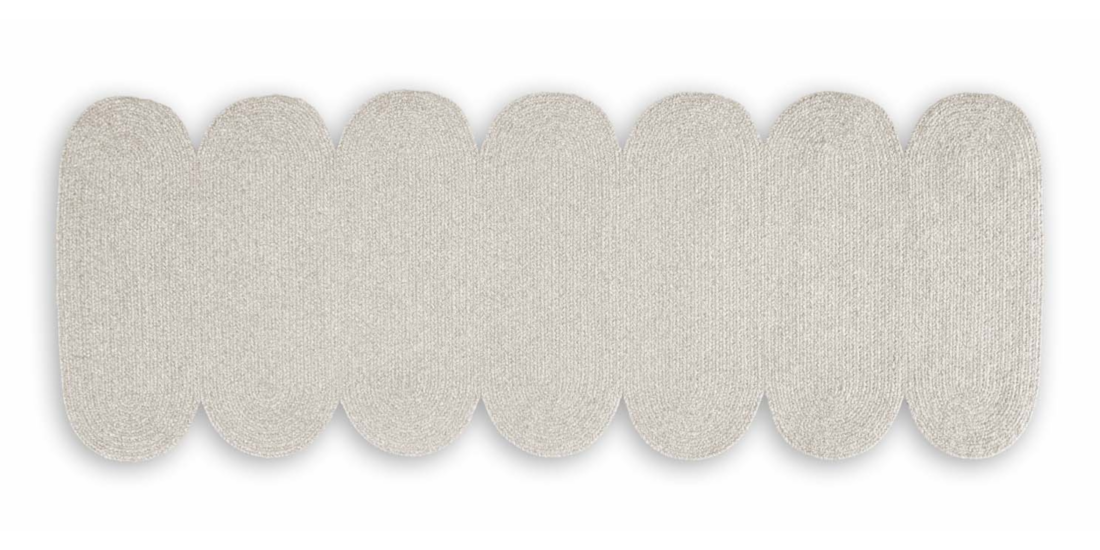
Laura Tripp and Caroline Cockerham first met working at conservation behemoth Patagonia, so it’s not a surprise that their company, Cicil, bills eco-consciousness as its top priority. Cicil specializes in natural, made-to-order rugs that use cast-off wool in dark varieties that are typically undesirable because they can’t be dyed. Cicil saves those bundles from a wasteful fate by turning them into cozy weaves that flatter any floor.
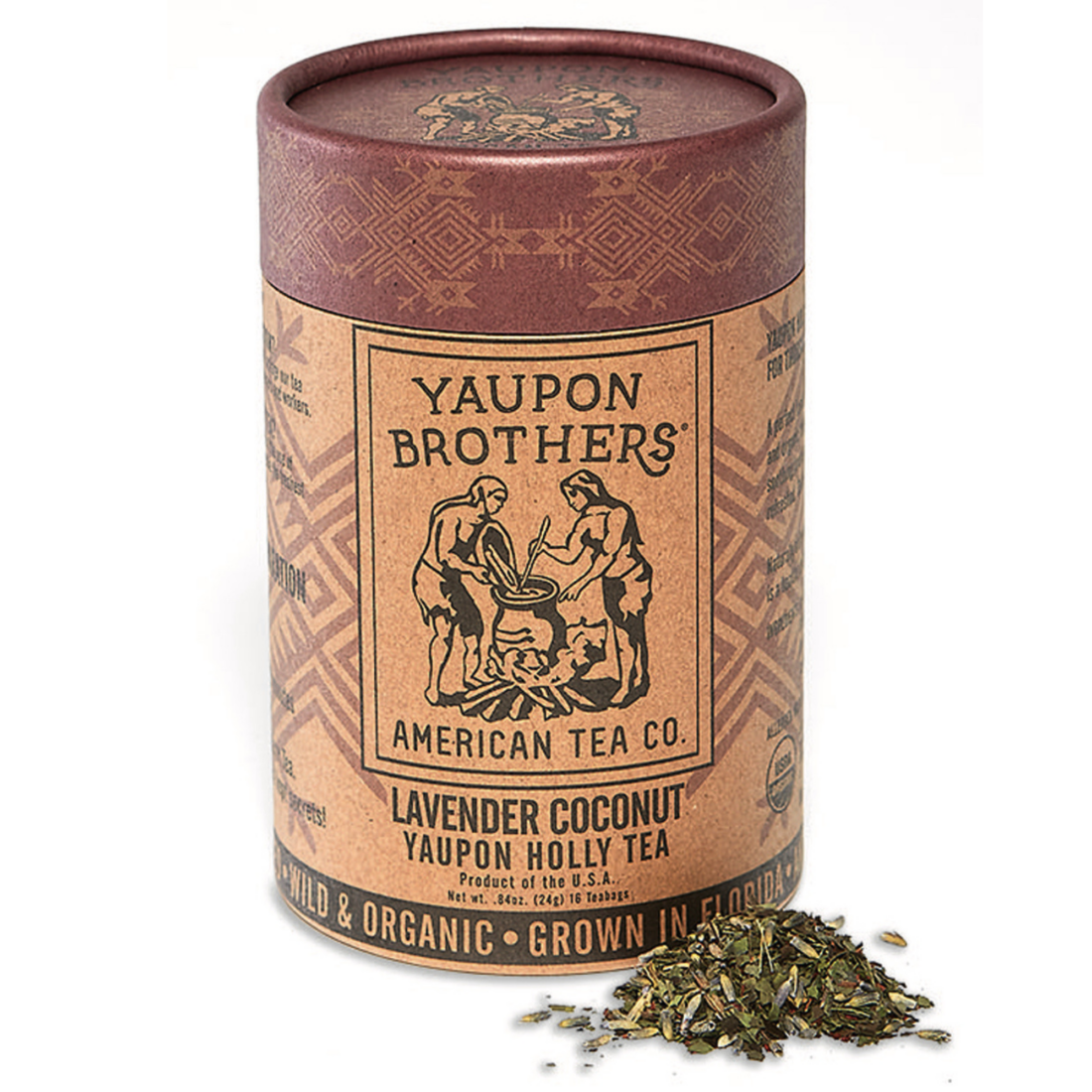
In 2015, the White brothers began planting the seeds for more sustainable caffeine consumption, which is nothing to scoff at when you consider that 90 percent of Americans consume caffeine daily. Yaupon holly is the only plant native to North America that contains caffeine, and Yaupon Brothers American Tea Co. handpicks each leaf on organic farms in Florida, Mississippi, and Alabama, packaging them in compostable tea bags to reduce waste.
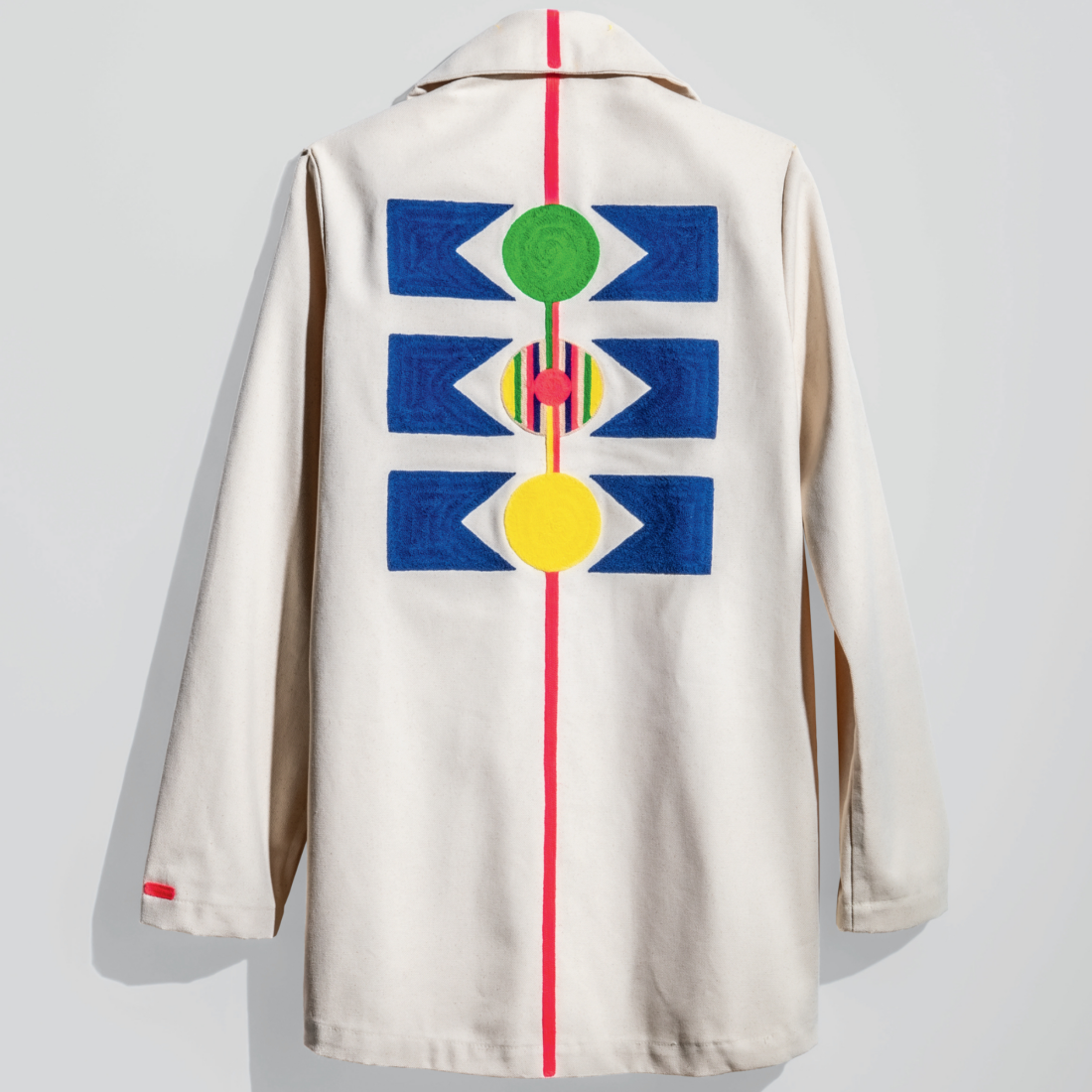
The Texas-based luxury clothing label Molyan cites handcraft and sustainability as the pillars of its practice, and it shows. The hand-embroidered, small-batch jackets are crafted with 100 percent duck canvas cotton, while their eye-catching geometric designs are made using organically dyed threads; all of their fabric and materials are ethically sourced, too. The result is a stitched-to-order heirloom piece whose every element feels intentional.
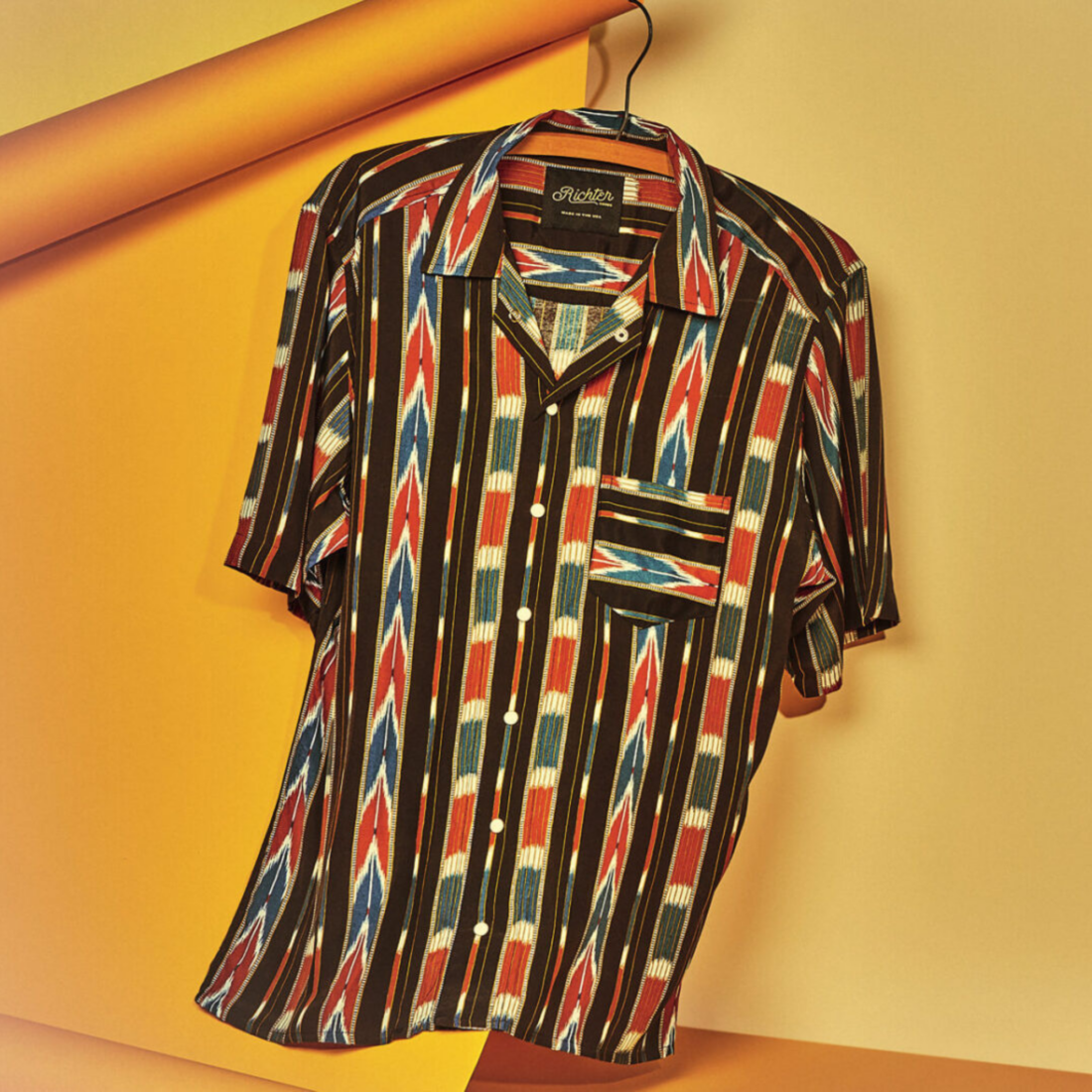
The Richter Goods team is all about minimizing waste, which is why they purposefully keep their inventory low and restock based on demand. Their western-style shirts are produced entirely in-house, aided by their ten-person team of seamstresses, machinists, and pattern makers, which ensures a low environmental impact, fair labor conditions, and standout wardrobe pieces.
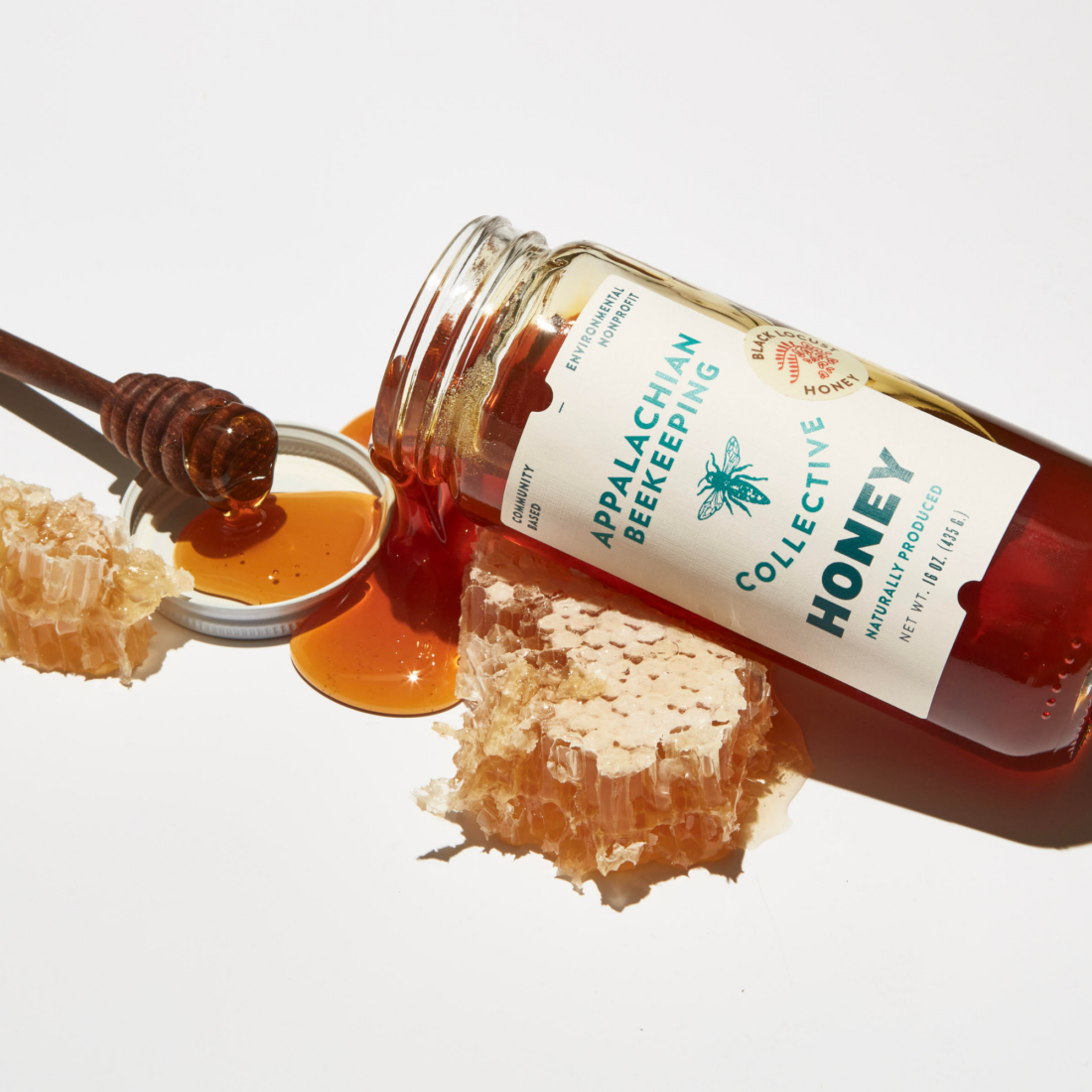
The nonprofit Appalachian Headwaters was built on sustainability, founded in 2016 to reverse ecosystem damage caused by coal mining. As they planted trees, they realized they would also need some pollinators, so the Appalachian Beekeeping Collective emerged. Now it’s a win-win-win situation: Landowners who keep bees are supported with a second source of income, the pollinator population is cultivated and protected, and the public is supplied with sumptuous, golden West Virginia honey.
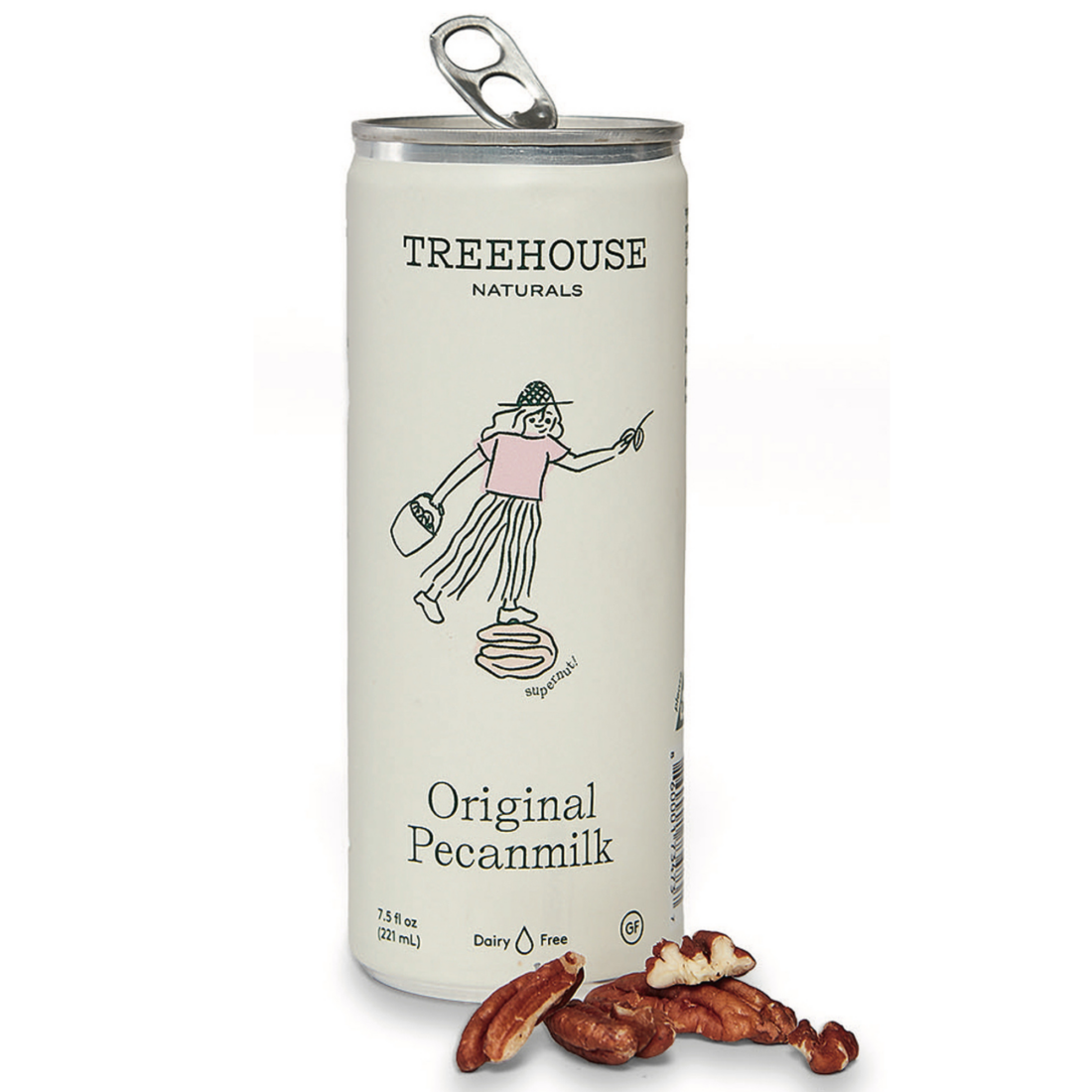
When Bess Weyandt and Kate Carter began their quest to distribute homemade nut milks, they looked close to home: Pecans are the only nut native to North America, and they thrive in Georgia’s long, hot summers. If you’re ordering these high-quality cans from afar, never fear—Treehouse Naturals purchases carbon offsets and plants a tree for every order shipped.
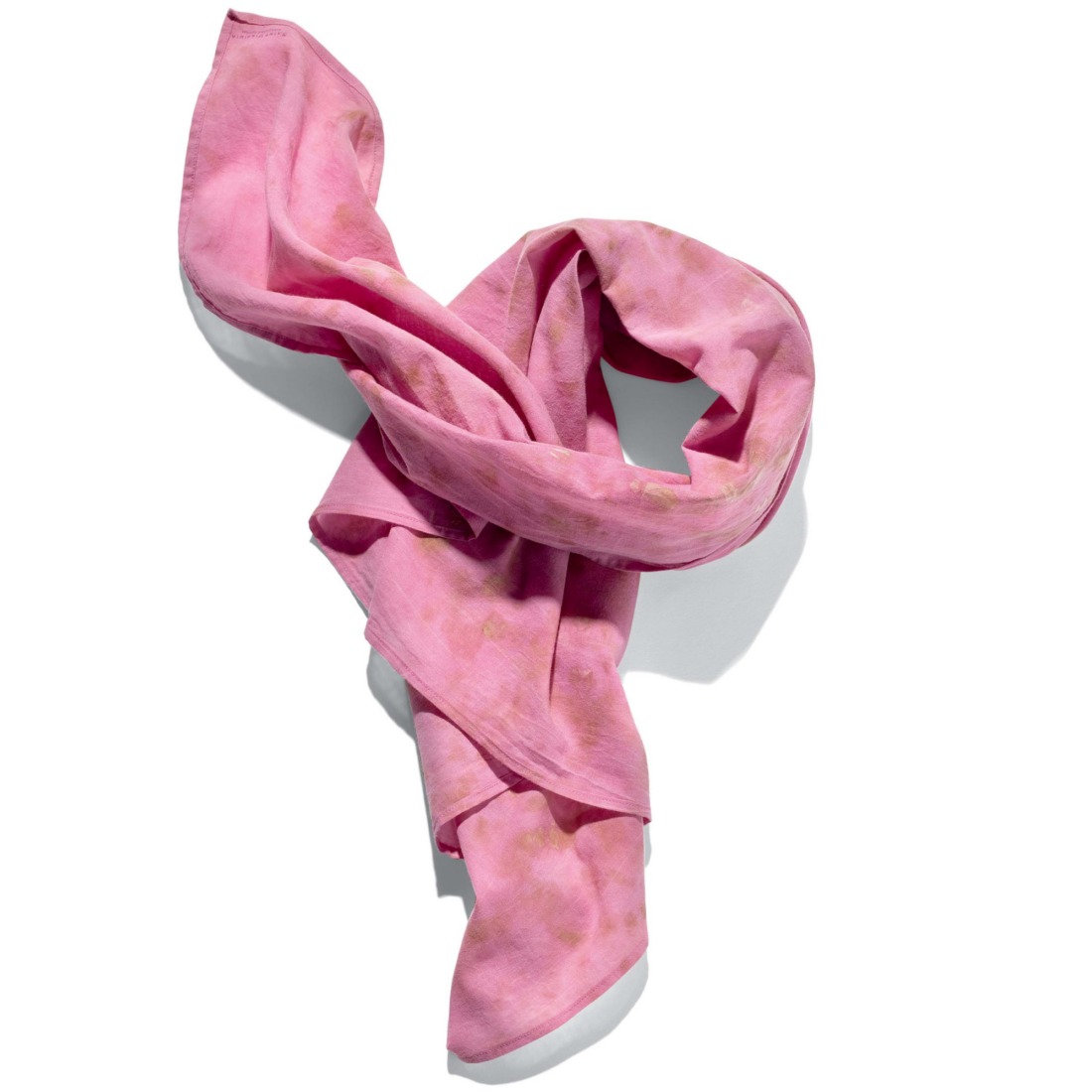
Amy Hindman’s textile studio and atelier values the efficacy of the ripple effect. Hindman crafts her colorful scarves with organic fibers and hand-dyes them with naturally derived colors—materials she sources from a host of farmers whose practices improve soil, air, and water quality, which in turn improves the quality of life for the rest of us. Owning a multi-hued, one-of-a-kind scarf doesn’t hurt, either.





